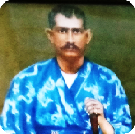Title – Skill Enhancement Programme (Certificate Course in Communicative English)
Objective – The aim of the practice, which the college has been following since 2013, is to enable the students to communicate fluently and confidently in English, to pronounce English words and expressions correctly, identify problems and work out their solutions, complete projects assigned to them from time to time and submit reports. It also aims to encourage them to engage in group discussions and/or dialogues on various burning topics and contemporary issues. The underlying concept or principle of the practice is to help the students to make proper use of their knowledge of English language and develop their communicative skills. This communicative approach to teaching English helps them very much to overcome their hesitation and nervousness in using the language in real life.
Context – As a part its competence enhancing strategies, the college introduced a certificate course in functional/Communicative English mainly for the students from the year 2013. The immediate context of introducing the course was a challenge that our students were facing at the time. The students of the courses/programmes faced difficulties in speaking/communicating in English during the campus interviews for jobs. They had command over the subjects they were taught in their classes but they could not speak fluently in English. The college authority felt that in a highly competitive job market, the students must develop communicative skills. With this end in view, the IQAC advised the English department to start a certificate course in communicative English. A language lab was set up and resource persons from within and outside the department were engaged.
Practice – The course, conducted by the department of English, is of 60 hours duration. It is divided into theoretical lectures and projects. Each lecture is of one hour duration. The course content are carefully selected to teach the students various grammatical functions like the use of articles and tenses, voice and narration change, phrasal verbs, modal auxiliaries and writing skills like reporting, dialogue and letter writing, responding to advertisements, preparation of resume/curriculum vitae, comprehension etc. Various topics are selected for the students to enable them to speak extempore. Group discussions on various contemporary issues are also organized. The objective is to encourage the students to speak fluently. They are also allowed to use microphones in the language lab so that they themselves can understand whether they are pronouncing a word correctly or not. Special emphasis is given on pronunciation drills. Daniel Jones’ English Pronouncing Dictionary and A.S.Hornby‘s Advanced Learner‘s Dictionary are used for this purpose. English Grammar books written by Wren and Martin and P.K.DeSarkar are used to teach grammatical functions. Home tasks are given regularly and they are corrected by the instructors. The students are also required to prepare various projects on local fairs, pujas, health centres, municipal service, NSS activities etc. The objective of these projects is to help them develop their linguistic and communicative skills, identify problems and work out solutions. At the end of the course class tests are held and mock interviews are organized. The successful candidates are given certificates signed by the Principal/TIC and the course co-ordinator.
Success indicator – As evidence of success of the course we collect feedback from the students. The overall impression of the learners is that they have benefitted from it. They now feel at ease to converse in English and face any interview conducted in the English language.
Resources Required – No resources are required except extra time involvement from our faculties.
Problems encountered – The main problems that we have faced in implementing this practice is lack of qualified resource persons, financial support and more space., photo- copying facility and payment of remuneration to the instructors. We have discussed the problems with the Principal and requested him to (a) apply for UGC grant and (b) share the financial responsibility for implementing this best practice. His response so far is positive and encouraging.



